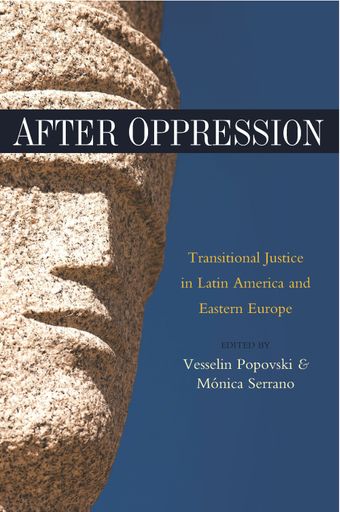- Home
- Books
- After Oppression
- Chapter
The complexity and effectiveness of transitional justice in Latin America and Eastern Europe

- Author: Vesselin Popovski
- Main Title: After Oppression , pp 485-495
- Publication Date: January 2013
- DOI: https://doi.org/10.18356/69887857-en
- Language: English
- Previous Chapter
- Table of Contents
- Next Chapter
The violations of human rights by the authoritarian regimes in Latin America and Eastern Europe created growing popular anger that exploded in mass uprisings and demands for change, bringing the regimes to an end. It was a bottom-up process: a gradually rising discontent of ordinary people who, in the aftermath of the changes, made continuous calls for justice and for the perpetrators to be brought to account, and simultaneous calls for compensation for the victims. The demands for justice and compensation faced initial reluctance, partly because political forces connected to previous regimes remained powerful and influential. The processes of transitional justice have been controversial and complex, sometimes involving demands for extra-judicial punishment or similarly unacceptable calls for blanket forgiveness.
© United Nations
ISBN (PDF):
9789210558938
Book DOI:
https://doi.org/10.18356/abdf8199-en
Related Subject(s):
Human Rights and Refugees
Sustainable Development Goals:
-
From This Site
/content/books/9789210558938s005-c003dcterms_title,dcterms_subject,pub_keyword-contentType:Journal -contentType:Contributor -contentType:Concept -contentType:Institution105
/content/books/9789210558938s005-c003
dcterms_title,dcterms_subject,pub_keyword
-contentType:Journal -contentType:Contributor -contentType:Concept -contentType:Institution
10
5

